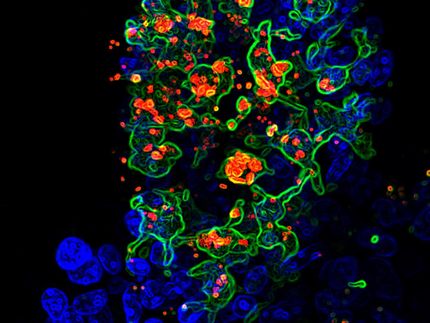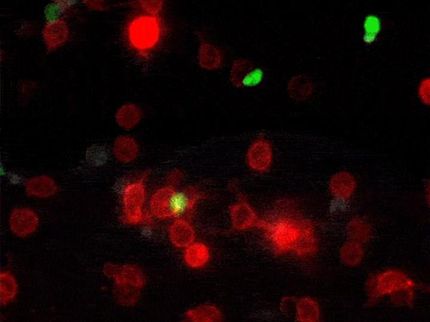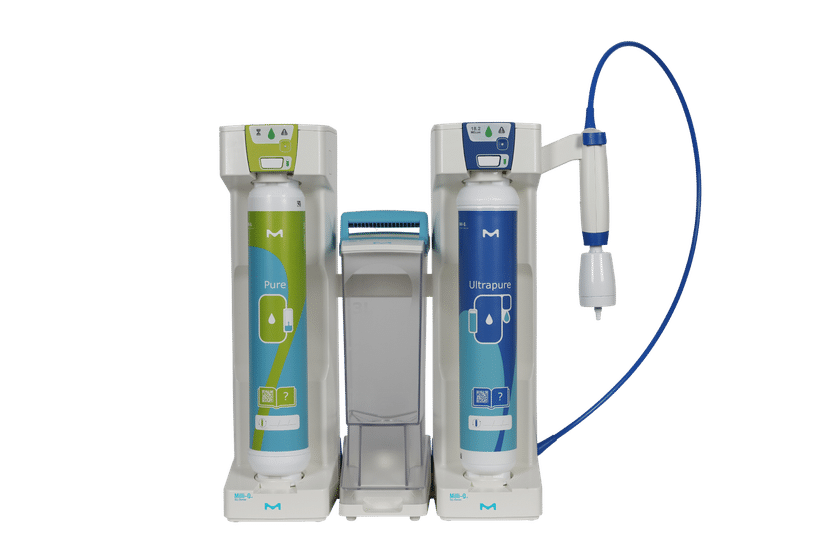Cellular responses to bird flu vaccine uncovered
New research from Vanderbilt University eavesdrops on gene expression in human immune system cells before and after vaccination against bird flu.
The study exposes cellular responses associated with a vaccine constituent called AS03, short for adjuvant system 03. Using massive computation, the investigators pursue a systems biology approach, providing a new wealth of detail about vaccine responses and data for the generation of new hypotheses.
“This study signifies a new and different way to study vaccines. We’ve established that it can be done; it’s complex but it’s feasible. I think in the future this is the way vaccines will be studied,” said one of the authors, Leigh Howard, M.D., MPH, assistant professor of Pediatrics.
The team studied a vaccine for bird flu subtype H5N1, which is far more lethal in humans than seasonal flu.
AS03 is known to markedly boost the protection afforded by pandemic flu vaccines, including those for swine flu and bird flu, but its molecular mechanisms aren’t understood.
Howard, immunologist Kristen Hoek, Ph.D., and colleagues report gene expression signals arising as early as the first day after vaccination that strongly predict the eventual generation of protective antibodies against H5N1.
They also find that neutrophils, a type of white blood cell, appear to have a hitherto unobserved role in vaccine response. Part of the human immune system’s first-line defenses, neutrophils appear to be the first responders to the adjuvated version of the vaccine.
According to gene expression profiles revealed in the study, neutrophils may also function as antigen-presenting cells (APC) in response to AS03-adjuvated vaccine. APCs fine-tune the immune response by retrieving and processing foreign antigens and presenting them to B cells and T cells in order to mount an immune response.
The investigators randomized 20 participants, half to receive AS03-adjuvated vaccine and half to receive unadjuvated vaccine — two doses each, one month apart. Blood was drawn from each participant at eight time points over a 12-week period (including three time points before vaccination).
Using a cell sorting method devised at Vanderbilt by Hoek and colleagues, samples of six immune system cell types were extracted from each blood draw, and a method called RNA-Seq was used to sequence the entire transcriptome of each cell sample. Conventional serum antibody testing was also performed to gauge protection provided by the vaccine.
Reflecting results from epidemiological studies, two months after initial vaccination no recipients of unadjuvated vaccine and nine of the 10 recipients of AS03-adjuvated vaccine achieved serum antibody concentrations associated with protection.
From painstaking cell sorting to full RNA sequencing and data analysis, it’s an especially exacting way to study vaccine response.
“Boiling down 850 pages of data, we focused on three patterns of gene expression that give clues to the adjuvant’s mechanism of action,” said Hoek, research assistant professor in Pathology, Microbiology and Immunology.
Among the sequenced cell types, neutrophils, monocytes and dendritic cells were the most expressive at early time points after immunization. These cells are known to jumpstart the immune response.
“At day one (after vaccination) there were 80 genes similarly upregulated or downregulated in those three cell types,” Hoek said.
“A second result was that the neutrophils highly express the genes involved in antigen processing and presentation. That’s something new in vaccine immunology.”
The researchers were puzzled by a third striking pattern: gene expression in natural killer cells (NKs, another type of white blood cell) indicated proliferation of these cells at day three.
“We don’t yet know what to make of the NK story,” Hoek said.
Other news from the department science
Most read news
More news from our other portals
See the theme worlds for related content
Topic world Antibodies
Antibodies are specialized molecules of our immune system that can specifically recognize and neutralize pathogens or foreign substances. Antibody research in biotech and pharma has recognized this natural defense potential and is working intensively to make it therapeutically useful. From monoclonal antibodies used against cancer or autoimmune diseases to antibody-drug conjugates that specifically transport drugs to disease cells - the possibilities are enormous

Topic world Antibodies
Antibodies are specialized molecules of our immune system that can specifically recognize and neutralize pathogens or foreign substances. Antibody research in biotech and pharma has recognized this natural defense potential and is working intensively to make it therapeutically useful. From monoclonal antibodies used against cancer or autoimmune diseases to antibody-drug conjugates that specifically transport drugs to disease cells - the possibilities are enormous























































